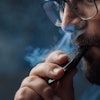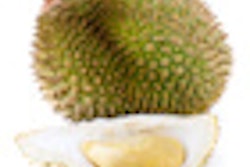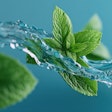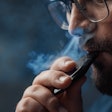
What do you tell patients who ask about unconventional oral health routines? That scenario is playing out with increasing frequency in regard to "oil pulling," an oral health routine with ancient roots that is popping up all over health blogs, magazines, and the occasional celebrity interview.
Oil-pulling therapy involves swishing oil, usually coconut or sesame, in the mouth for as long as 10 to 20 minutes and then spitting it out. It is part of a traditional alternative medicine called Ayurveda that originated in India. The roots of oil pulling go deep, and it is referenced in the Charaka Saṃhitā, a foundational text of Ayurveda that dates back to 300-500 CE.
The purported benefits are numerous, including whiter teeth and the reduction of halitosis, Streptococcus mutans, and plaque-induced gingivitis. The man behind many of these studies, who is arguably the most prolific oil-pulling researcher in the world, cautioned that data supporting its effectiveness are lacking -- but he also expressed confidence in its viability.
“I am convinced this works.”
"I would say there are not enough research and proper clinical trials in this regard," wrote Sharath Asokan, BDS, MDS, PhD, a professor at the department of pediatric dentistry at Meenakshi Ammal Dental College in Chennai, India, in an email to DrBicuspid.com. "Within limited available literature and as a person working in this area for close to a decade, I am convinced this works."
For now, the ADA has no opinion on the matter and responded to interview requests by saying that it cannot comment on oil pulling because additional research is needed, and provided a link to its general Policy Statement on Unconventional Dentistry. "With the explosion of unrefereed information about oral health issues made possible by the Internet, the Association believes that the need for systematic evaluation of diagnostic and treatment efficacy and safety to assist practitioners in responding to patient inquiries is greater than ever," the statement reads.
In Dr. Asokan's opinion, "the sudden focus is probably because people are health-conscious and prefer nature and natural remedies like Ayurveda." He also added that DrBicuspid.com's interview asking him about oil pulling was the third from the U.S. in the last two months.
While swishing oil in one's mouth is highly unlikely to be harmful, does it have any real benefits? As he stated previously, Dr. Asokan believes so -- but when used properly. "I am convinced it is a preventive strategy and not a therapeutic one," he explained.
Many of the results of Dr. Asokan's studies support its positive impact on oral health. In one in vitro study examining oil pulling, he and his fellow researchers evaluated the antibacterial effect of sesame oil and lignans isolated from it on microorganisms. The samples "did not have any antibacterial effect against oral microorganisms like S. mutans, S. mitis, and S. viridans," but "there are clear indications of possible saponification and emulsification process, which enhances [oil pulling's] mechanical cleaning action," they wrote. "The myth that the effect of oil-pulling therapy on oral health was just a placebo effect has been broken" (Indian Journal of Dental Research, January-February 2011, Vol. 22:1, pp. 34-37).
In a study that investigated the impact of oil pulling on microorganisms in biofilm models, Thai researchers from the Faculty of Dentistry at Mahidol University in Bangkok employed coconut oil, corn oil, rice bran oil, palm oil, sesame oil, sunflower oil, and soy bean oil (Asia Journal of Public Health, May-August 2011, Vol. 2:2, pp. 62-66). They found that "coconut oil exhibited antimicrobial activity against S. mutans and [Candida] albicans," they wrote. "Sesame oil had antibacterial activity against S. mutans whereas sunflower oil had antifungal activity against C. albicans. However, [Lactobacillus] casei was found to be resistant to all tested oils." Their study provided enough data for the researchers to conclude that "oil-pulling therapy with some edible oils could be used as a preventive home therapy to maintain oral hygiene, especially in developing countries."
Those researchers found that oil pulling with sunflower oil reduced plaque scores after 45 days. Dr. Asokan had found support for the technique's ability to reduce plaque in his own randomized, controlled, triple-blind study published two years prior (Indian J Dent Res, January-March 2009, Vol. 20:1, pp. 47-51). In that study, he and other Indian researchers compared sesame oil pulling's efficacy with chlorhexidine mouthwash while testing its impact on plaque-induced gingivitis.
The study included two groups, a control group and an oil-pulling group, of 10 age-matched adolescent subjects who performed their respective routines each day for 10 days. The control group rinsed with chlorhexidine and then brushed every morning, while the study group used sesame oil for oil pulling in the morning. "There was a statistically significant reduction of the pre- and postvalues of the plaque and modified gingival index scores in both the study and control groups (p < 0.001 in both)," the researchers wrote. "There was a considerable reduction in the total colony count of aerobic microorganisms present in both the groups."
Oil pulling "is as good as chlorhexidine for a routine preventive practice," Dr. Asokan told DrBicuspid.com.
He also found that it can have an impact on halitosis (Journal of Indian Society of Pedodontics & Preventive Dentistry, April-June 2011, Vol. 29:2, pp. 90-94). Similarly, that study compared the impact of oil pulling to chlorhexidine rinse in 20 adolescents, but over a 14-day period with different assessments performed. "The comparisons of the pre- and post-therapy values of plaque and modified gingival index score showed a statistically significant difference (p = 0.005 and 0.007, respectively)" in the oil-pulling group and chlorhexidine group. The two test groups performed equally as well in the organoleptic breath assessment, self-assessment of breath, and benzoyl-DL-arginine-naphthylamide (BANA) test from tongue coating samples. "It's a good remedy for halitosis, but it cannot totally replace treatment protocols," Dr. Asokan said.
While there are many Eastern studies, particularly from India, it appears as though the Western world has yet to put oil pulling's effect on oral health to the test. Dr. Asokan encouraged other researchers to add to the limited dataset. "Future research should focus on more randomized controlled trials with adequate samples and good follow-up," he wrote. "Focus on quality of life is needed."



















